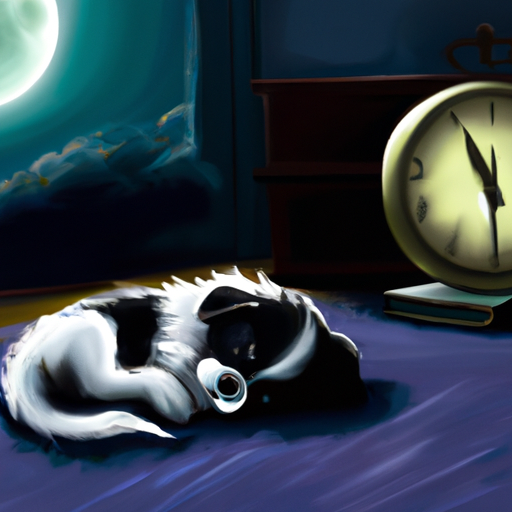Oh the joys of getting a new puppy! It’s all cuddles, playtime, and adorableness until nighttime comes and your little furball won’t let you get a wink of sleep. If you’re asking yourself, “When can puppies sleep through the night?”, you’re not alone. Let’s take a deeper dive into this topic and hopefully find some answers to your sleep-deprived prayers.
Understanding Puppy Sleep Patterns
Just like human babies, puppies also have different sleep patterns compared to adults. Puppies sleep a lot, often up to 20 hours a day, but their sleep is fragmented. You might have noticed that your puppy can go from a playful romp to a deep sleep in a matter of minutes. This is normal and an important part of their growth and development.
Factors Influencing Puppy Sleep
Several factors influence when your puppy will start sleeping through the night:
-
Age: Just like human babies, puppies are not born with the ability to sleep through the night. They learn this as they grow older. Most puppies can sleep through the night around 16 weeks of age. This varies depending on the puppy and the training used.
-
Breed: Some breeds are more active than others and may take longer to sleep through the night.
-
Environment: If your puppy feels safe and comfortable, they are more likely to sleep well.
-
Diet and Exercise: Regular meals and exercise can help regulate your puppy’s sleep schedule.
Training Your Puppy to Sleep Through the Night
Training your puppy to sleep through the night can be a challenging task, but with patience and consistency, it can be achieved. Here are some tips:
-
Establish a Routine: A regular schedule of feeding, playtime, and bedtime can help signal to your puppy when it’s time to sleep.
-
Create a Sleep-Inducing Environment: Make sure your puppy has a comfortable sleeping area. This could be a crate or a dog bed in a quiet, dark area of your home.
-
Limit Food and Water Before Bed: Avoid giving your puppy food or water within an hour before bedtime to prevent nighttime accidents.
-
Use Positive Reinforcement: Reward your puppy for good behavior and sleeping through the night.
-
Be Patient: Remember, training takes time and every puppy is different.
Common Sleep Problems in Puppies
Just like humans, puppies can also experience sleep problems. Here are some common ones:
-
Separation Anxiety: Puppies may cry or whine at night because they miss their littermates or mother.
-
Nighttime Accidents: Young puppies may need to go to the bathroom during the night.
-
Teething: Just like human babies, teething can be uncomfortable for puppies and may disrupt their sleep.
-
Illness: If your puppy is not sleeping well, it could be a sign of an underlying health issue.
When to Consult a Vet
If your puppy is consistently having trouble sleeping or is showing signs of distress or illness, it’s important to consult with a vet. They can rule out any health issues and provide advice on how to improve your puppy’s sleep.
FAQ
Here are some commonly asked questions about puppies and sleep:
Q: How many hours do puppies sleep?
A: Puppies sleep a lot, often up to 20 hours a day, but their sleep is fragmented.
Q: When can puppies start sleeping through the night?
A: Most puppies can start sleeping through the night around 16 weeks of age, but this varies depending on the puppy and the training used.
Q: What should I do if my puppy won’t sleep?
A: Make sure your puppy feels safe and comfortable. Establish a routine, limit food and water before bed, and use positive reinforcement. If your puppy is consistently having trouble sleeping, consult a vet.
Q: Can sleep problems in puppies be a sign of illness?
A: Yes, consistent sleep problems in a puppy could be a sign of an underlying health issue. Always consult a vet if you’re concerned.
Remember, every puppy is unique and will have different sleep needs. Be patient and consistent in your training and before you know it, you and your puppy will both be getting a good night’s sleep.



